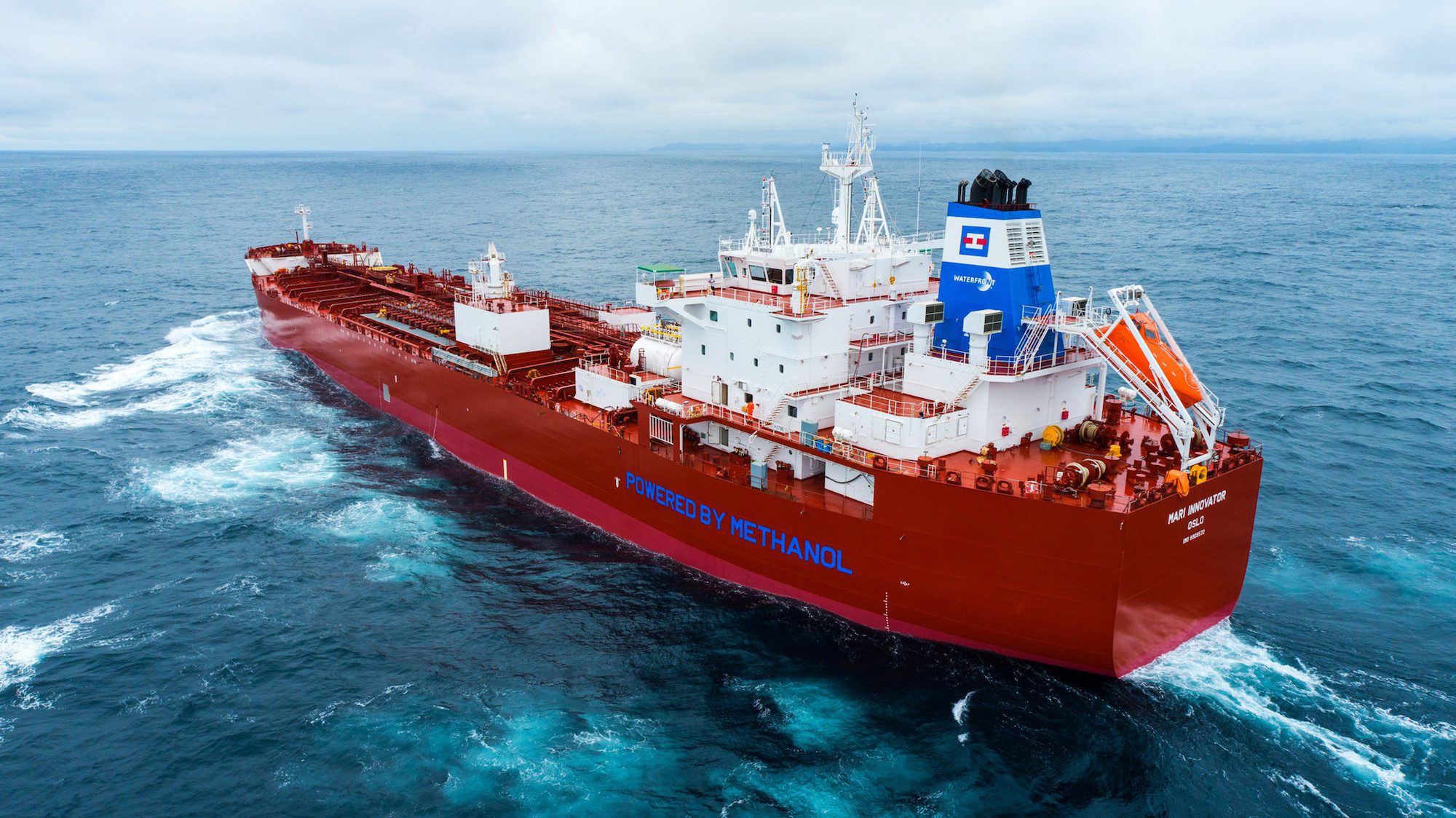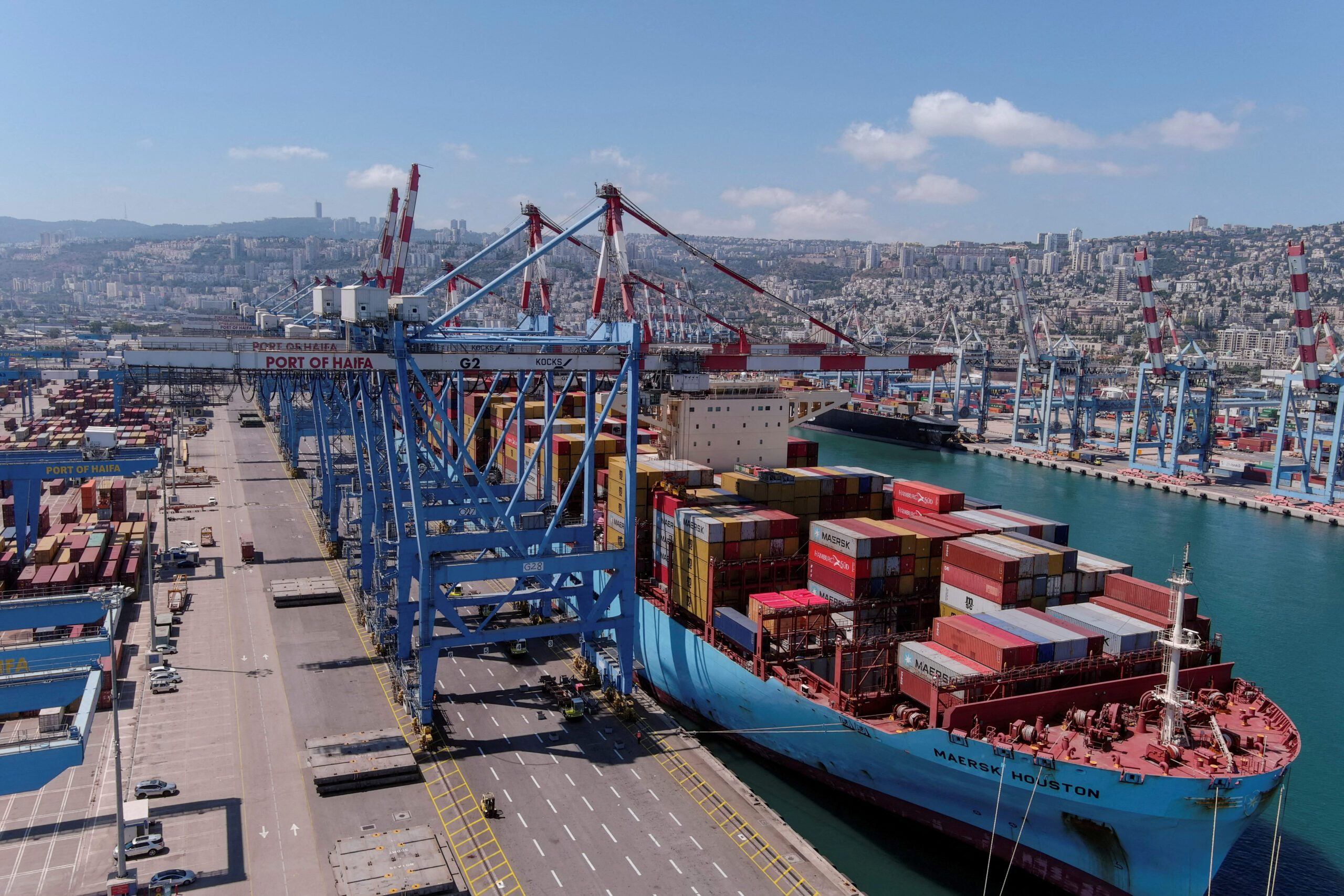By Nathaniel Bullard (Bloomberg) —
International shipping is a classic ‘hard to abate’ sector. Container ships, bulk carriers of ore, fuel, and grain, and large passenger vehicles are expensive to build, last for decades, and have gained efficiency historically by becoming bigger. More than 95% of today’s ships run on petroleum products, fueling diesel engines which have been optimized for their specific purposes. They ship about 90% of global trade.
While emissions in the global power sector may be close to peaking, international shipping emissions show no signs of doing the same. According to the International Energy Agency, shipping emissions have risen by nearly one-third this century. With more international trade, and more inputs and finished products on the move, shipping emissions will rise as a function of movement. Change in shipping is hard.
But change is also necessary. The largest ships have used the same fuels for decades. These fuels, which together are known as ‘bunker,’ are the residual results of refining oil for other fuels and products. Bunker is less expensive than other fuels, but it is also literally heavier (some grades need to be heated in order to move through a fuel system), and it is certainly polluting. Bunker fuel is carbon-rich, and it is naturally laden with other pollutants such as mercury and sulfur, though new regulation has significantly curtailed the latter.
A new industry study shows how ship-owners think about their own future, and the answers are instructive. A joint study from the Global Maritime Forum, the Global Centre for Maritime Decarbonisation, and the Mærsk Mc-Kinney Møller Center for Zero Carbon Shipping highlights steps that are being taken today, and suggests ways in which the industry might change.
The most important finding is that while fuel oil is the undisputed industry standard today, shippers see no standardized fuel choice by mid-century. A suite of fuels, from liquefied natural gas to methane to ammonia, are all viewed as more or less equally viable at scale. Some other fuels, such as hydrogen, could play a role, but are likely to be niche. Nuclear power, already used for military applications, could play a role but probably not a major one.
Another important finding is that the industry’s decarbonization efforts today are mostly about efficiency – doing the same activity with less conventional fuel. Those measures include activities such as routing vessels for better weather, improving the efficiency of hulls and propellers, and improving operations in the engine room. All good, but efficiency gains do not change fuels, or emissions from burning them.
That is where other innovations will be necessary: low-carbon fuels (such as biodiesel and ammonia made using renewable electricity) and alternative power sources (such as electricity generated on-ship by wind or solar power). Here, the industry’s experience to date is quite mixed.
Half of the shipping companies in the industry study have deployed low-carbon fuels in some form, mostly in early-stage pilots. Only 35% had no adoption of low-carbon fuels at all. However, only 4% of companies had piloted alternative power sources, with half of companies planning (but not yet piloting) and more than a third with no adoption whatsoever.
A final finding is important. Shipping is a regulated global industry, and its owners and operators are hardly unaware of the need to significantly decarbonize. The study not surprisingly finds that the single biggest determinant of shipping decarbonization will be what regulators require of the industry.
Still, it will be shipowners and operators who chart the course. China, Korea, and Japan dominate shipbuilding, with companies such as Daewoo, Samsung, Hyundai, and Mitsubishi maintaining global reach. Decisions made by any one of these highly competitive companies would urge others to follow suit. Similarly, ship operators such as Maersk, MSC, or Cosco could also use their clout to make fuel choices that will require their peers to catch up.
Yes, regulations and emissions standards will be essential, but company-level action will most likely determine the shipping industry’s complex future fuel mix.
Nat Bullard is a senior contributor to BloombergNEF and writes the Sparklines column for Bloomberg Green. He advises early-stage climate technology companies and climate investors.
© 2023 Bloomberg L.P.

 Join The Club
Join The Club











